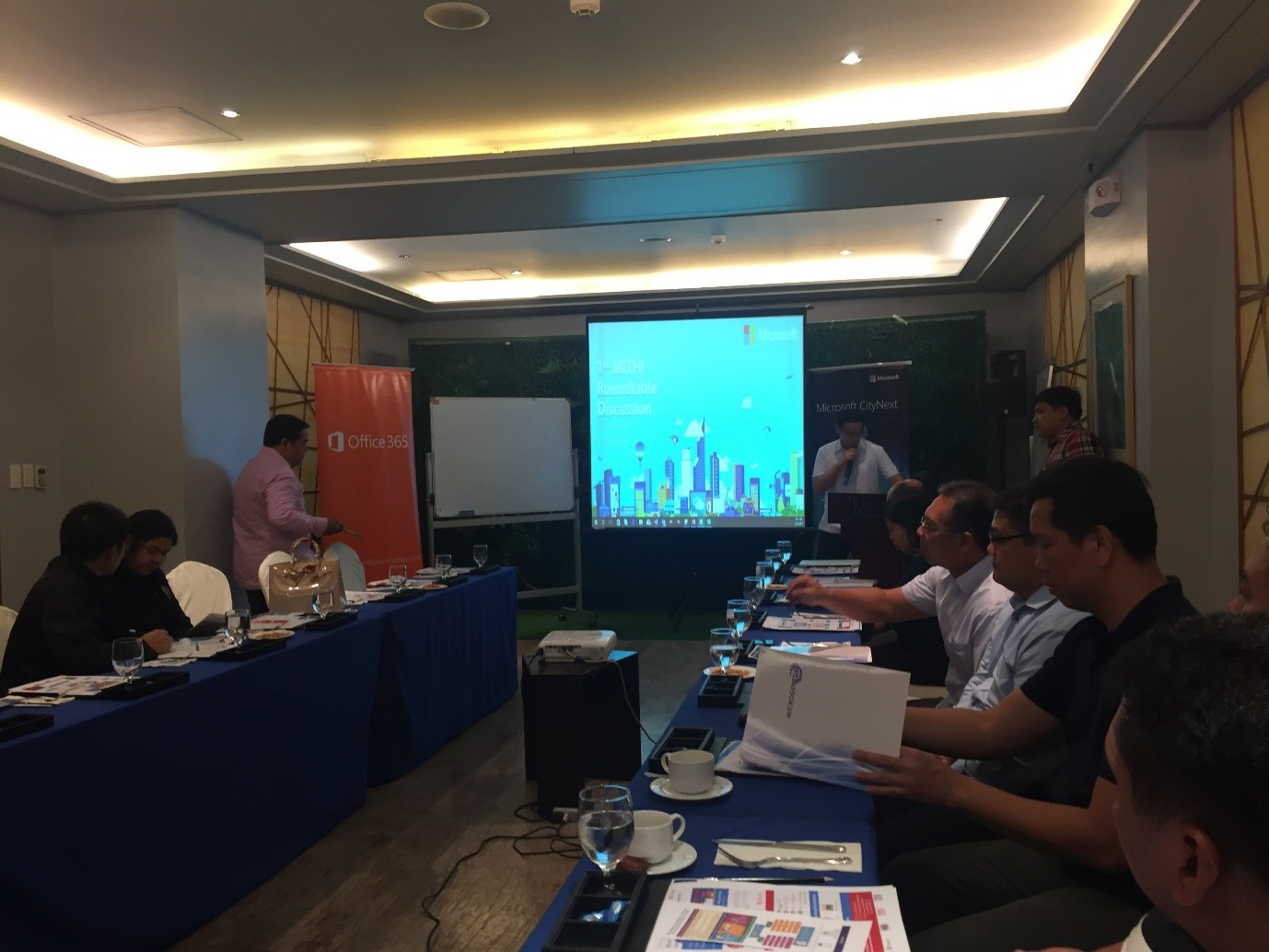The National Commission on Muslim Filipinos, through the Planning Service participated in the 1st Government Sector Roundtable Discussion on MITHI. The event is a roundtable discussion conducted by the Microsoft Philippines which composed of Chief IT Officers and IT specialists of different MITHI recipient agencies in March 15, 2017, 8:30am-11:30am at Luxent Hotel, Quezon City.

MITHI stands for Medium-term Information and Communications Technology Harmonization Initiative (MITHI).
The roundtable discussion seeks to identify issues and concerns faced by government agencies in the procurement of Office Standards, “insights and feedback on how the centralization and standardization of MITHI Program worked for your agency”, and how can Microsoft can help the agency to move forward.
There are many issues discussed in the roundtable discussion. First, on the procurement of Microsoft Licenses in 2016, one of the agencies received the “Home bundle” instead of the Professional bundle. Second, on the newly purchased ACER and ASUS laptops and desktops it was mentioned that the Department of Budget and Management (DBM) did not inform the government agencies about the winning distributor of said items, and the problem arise when the agency needs to consult about the items they received. Third, on the issue of misreporting, it was raised that what has been discussed in the consultation session on ICTs is different from what the agency will receive. For instance, they have discussed “Intel” laptops only to receive “AMD” in the actual. Fourth, on the process of screening, it was noted that there is a need to test the items first before distributing them with the government units as this could lead to national security. For instance, the Lenovo was found out by the National Intelligence Coordinating Agency (NICA) as having a pre-installed Operating System (OS) that sends data (e.g. address/location of users, passwords) to Lenovo Central Office. Finally, on the issue of the need for realignment, MITHI representative discussed that the computer software should be in the Maintenance and Other Operating Expenses (MOOE) and not in the Capital Outlay (CO) budget of an agency.
The last part of the program, Office 365 was introduced by Microsoft that aims to serve the public effectively through its diverse features comparable to the Google Apps. It also aims to transform the government’s technology landscape.
